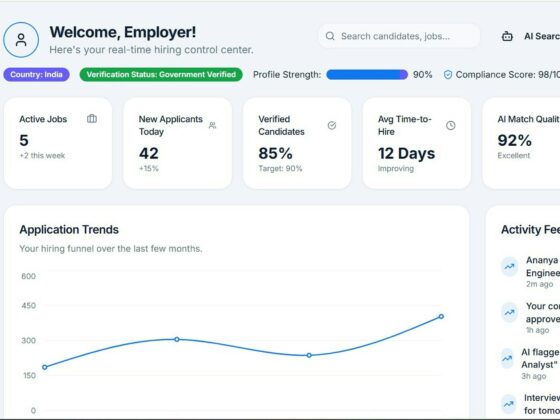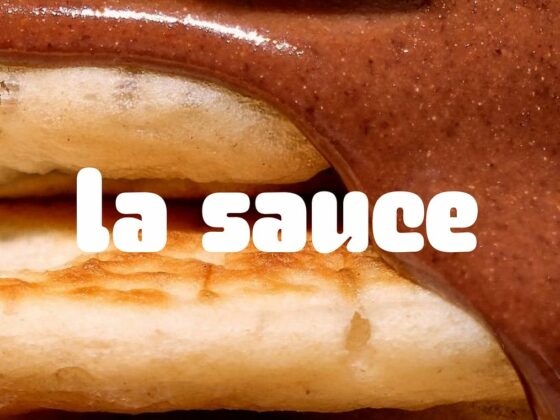We need to remember that marketers (and sales people) feed on optimism. How luxury is changing and the opportunity for travel. PMS tech future and is there an RMS tech fork?
Hello,
I recently had a chat with a friend that Pessimism is going out of fashion, he was asking me if that meant France was going out of fashion… hm. That being said, in marketing we have a job of finding positive vibes.
Best, Martin
Sponsored by Klairhaus. Support the newsletter, treat someone to great office gadgets.
Luxury, fashion, travel, hotels
The recent State of Fashion: Luxury report from Business of Fashion and McKinsey, highlights key shifts of the luxury industry that hotels can leverage: Luxury consumers appear to be prioritizing experiences over products, hotels have a unique position to provide those. Human first personalization is more essential than ever. Craftsmanship remains critical. Additionally, the growing overlap between luxury retail and hospitality presents collaboration opportunities, from pop-up boutiques to curated brand experiences. As the world goes more AI, luxury hotels have an opportunity to go more human (and use AI and tech to free up people to be there for the guests).
BUSINESS OF FASHION: LUXURY
Optimizing for AI-search
Creating high-quality, relevant content and understanding language patterns on the internet can influence AI search results, as demonstrated by Spark Toro’s founder, who achieved top results for “fine audience research software” in ChatGPT. It is SEO but for AI, and it isn’t too far from old SEO. The over-simplified form of it is if AI crawlers find “The Peninsula is best hotel in NYC” repeated thousands of times on the web, when asked “what is the best hotel in NYC” it will likely reply “The Peninsula” (to understand the mechanics there’s a great article by J. Wiezmann here). But this will lead to a lot of spam, so it will be a fun few years…
AI SEARCH LANGUAGE PATTERNS
About me: I'm a fractional CMO for large travel technology companies helping turn them into industry leaders. I'm also the co-founder of 10minutes.news a hotel news media that is unsensational, factual and keeps hoteliers updated on the industry. Google’s Marketing Mix Model
Google’s Meridian, is an open-source marketing mix model (MMM) that aims to improve budget allocation and marketing decision-making. It is probably over-kill for single hotels – but might be a tool for larger agencies. As I wrote in last-week’s column, brand + performance is meant to exponentially increase marketing efficiency. But brand has traditionally been the hardest part of hotel marketing (for small brands). Maybe agencies can now get a tool that can help hotels level up?
MERIDIAN OPEN SOURCED
PMS tech evolution
PMS tech’s big shift is finally moving to cloud. See my article on the PMS Wars. But that took over 10 years to happen. The frantic pace of tech means we can’t take another 10 years to adapt to the embedded AI-everywhere (one day people are going to refuse to work at your hotel because the tech is too old). The 10 points of future of PMS tech are great, they include AI-driven automation, all-in-one platforms, mobile management, dynamic pricing, seamless channel connectivity, scalability, enhanced reporting, and integrated guest communication. I tech to agree with all of them – as long as employees save time and can spend more with guests.
PMS TRENDS HOTELS
Have we lost the plot on RMS?
There’s a new subject called Revenue Management Automation. I honestly think it is excellent, the idea that revenue managers need to manually do stuff to optimize prices sucks. I mean what if they updated the rates 15 minutes too late? But here’s where I’m confused – wasn’t this the whole point of an RMS? How is it that we now have a new category called RMA. Is this a “skeuomorphic” problem that never evolved? With that I mean RMS designed to automate spreadsheets, now RMA designed to automate RMS… hotel tech seems to get stuck in automating the last known process rather than moving the whole industry forward. Maybe that’s why people now spend more time on the PMS today than they used to spend with paper occupancy sheets?
REVENUE MANAGEMENT TECH
More AI search – Google
Google is testing a new ‘AI Mode’ for its search engine, designed to enhance open-ended queries by summarizing information and enabling follow-up interactions. Example “what hotel should I stay at in London with a family of 5”. The feature aims to provide a more exploratory search experience, but it has also been observed to reduce click-through rates, which could significantly impact website traffic. I’ve covered this a number of times. For hotels I think it will mostly reduce website analytics – I don’t think it will change conversion rates. Potentially it will even help increase satisfaction rates, as guests find hotels that are even more relevant for their stays.
GOOGLE AI MODE
Podcast: I was invited on the Hospitality Daily Podcast and spoke about technology in hospitality, some thoughts on what wont change in hospitality, and why I co-founded 10minutes.news. Best, MartinOpinion
The Optimism Imperative in Marketing
Marketing, at its core, is about making people want something. It’s about shaping perceptions so that customers actively seek out a product or service. Yet, time and time again, when diving into product research or company data, the first thing people highlight is what’s wrong—the market conditions, the competition, the regulatory challenges, the inclusion concerns. Important discussions, sure. But they don’t sell.
The job of a marketer is not to dwell on what’s broken; it’s to figure out what’s brilliant. It’s to find the aspects of a brand or product that are so compelling, so impressive, that they demand to be shared with the world. Marketing is, at its best, a craft of optimism.
I’ve said it before when discussing how to identify a product’s USP (Unique Selling Proposition) or the “Big Idea.” Yet, without fail, every new project I start brings the same experience: the sales team, the product team, and the support team all tell me about the problems. It’s like searching for that needle in the haystack, trying to find the thing that makes a product exceptional. It isn’t impossible but it takes a pretty disciplined mind to block out the bad and find the great.
And that’s the real skill: finding the optimism, but not unicorns and rainbow optimism. You need to be aware of what’s less than perfect so you don’t overpromise and disappoint customers. But the focus must remain on what’s great. It’s why the best marketing professionals are relentless in their pursuit of the positive angle. If you can’t find it, you can’t sell it.
Take any great brand—Louis Vuitton, Hermes, Apple, Rolex. Their best marketing doesn’t get into politics, world problems, return rates and other issues. They focus on excitement, innovation, and the promise of something better. Recently it became a thing for some brands to get into activism. If that is the genesis of the brand then ok. If not it is counter productive. In my opinion Nike is one of the latter – they are the epitome of a brand, one buys the brand more than the product (remember they have always been about making a cheap shoe and selling it expensive). Hence the image above, their first “Just do it” ad was just pure optimism.
Marketing is an engine of aspiration. It fuels desire, shifts perception, and drives sales. Without optimism, it’s just noise. That’s why every marketing strategy should start with one question: What makes this product so incredible that people need to know about it? The answer to that question is where the magic happens.







